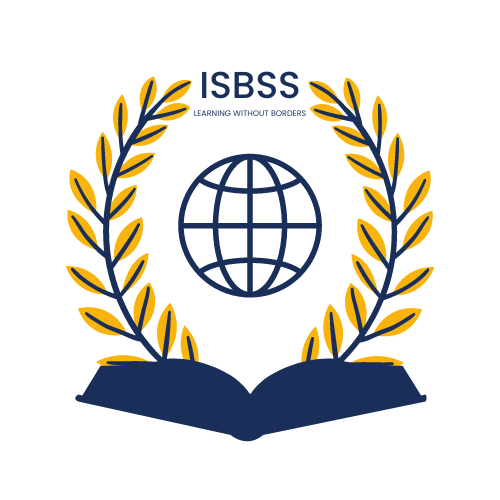Objectives - Program Description
The Master’s in International Business (MIB) prepares students to manage business operations in an increasingly interconnected world. The program combines foundational business disciplines with a deep understanding of global markets, cross-cultural communication, international trade policy, and global strategy. It emphasizes ethical leadership, sustainable development, and digital innovation in international contexts.
Graduates are trained to lead global teams, manage cross-border operations, and develop international market strategies for multinational corporations, NGOs, government agencies, and startups expanding internationally.
Learning Outcomes
Graduates will be able to:
- Analyze the global business environment and identify strategic opportunities.
- Understand the political, legal, and economic frameworks affecting international business.
- Develop and implement cross-border marketing, supply chain, and financial strategies.
- Manage culturally diverse teams and negotiate effectively across cultures.
- Evaluate the risks and ethical implications of global business operations.
Program Structure
Duration: 2 years (full-time) or 3–4 years (part-time/online)
Total Credits: 36–42 credit hours
Delivery Mode: Online
Course Structure
Core Courses (24 credits)
Code | Course Title | Description |
|---|---|---|
INBU 601 | Global Business Environment | Analyzes the economic, political, and social forces shaping international business. |
INBU 602 | International Trade and Investment | Covers trade theories, FDI, and institutions like WTO and IMF. |
INBU 603 | Cross-Cultural Management | Management of teams and leadership in multicultural contexts. |
INBU 604 | International Marketing Strategy | Marketing strategies adapted to diverse global markets. |
INBU 605 | Global Supply Chain and Logistics | Planning and managing cross-border logistics and sourcing. |
INBU 606 | International Financial Management | Managing exchange rate risks, global capital flows, and financing international operations. |
INBU 607 | Ethics, Governance & CSR in Global Business | Ethical dilemmas, corporate social responsibility, and governance in international contexts. |
INBU 608 | Research Methods for International Business | Quantitative and qualitative research methods for global markets. |
General Electives (Choose 3 – 9 credits)
Code | Course Title | Description |
|---|---|---|
INBU 621 | Doing Business in Emerging Markets | Focus on market entry, risks, and opportunities in Asia, Africa, and Latin America. |
INBU 622 | International Negotiation & Diplomacy | Techniques and strategies for negotiation across cultures and institutions. |
INBU 623 | Digital Transformation in Global Business | The role of digital technologies in international competitiveness. |
INBU 624 | Global Business Law and Compliance | International contracts, regulatory frameworks, and compliance. |
INBU 625 | Foreign Market Entry Strategies | Joint ventures, franchising, greenfield investment, etc. |
Elective Courses Focused on Developing Countries
- INBU 631 – Business in Africa: Markets, Institutions, and Strategy
Description:
Examines Africa’s economic landscape, institutional frameworks, and market potential. Topics include intra-African trade, AfCFTA, informal markets, entrepreneurship ecosystems, and investment risks/opportunities.
- INBU 632 – Sustainable Business and Inclusive Growth in Emerging Markets
Description:
Explores how businesses can contribute to inclusive growth through sustainable practices, social entrepreneurship, and partnerships with governments and NGOs in the Global South.
- INBU 633 – Informal Economies and Entrepreneurial Innovation
Description:
Focuses on the role of informal markets, survival entrepreneurship, and grassroots innovation in developing countries. Includes strategies for engagement and formalization.
- INBU 634 – Institutional Voids and Business Strategy
Description:
Analyzes how companies navigate weak infrastructure, unreliable legal systems, and regulatory gaps. Case studies on multinational adaptations in countries with institutional voids.
- INBU 635 – Public-Private Partnerships and Development Projects
Description:
Studies how international businesses can partner with governments and donors to deliver infrastructure, health, and education projects in low-income countries. Topics include risk-sharing, accountability, and financing.
- INBU 636 – Regional Integration and Trade Blocs in the Global South
Description:
Evaluates trade blocs like ECOWAS, ASEAN, MERCOSUR, and their impact on investment and business expansion strategies in emerging markets.
- INBU 637 – Diaspora Investment and Business Networks
Description:
Explores the role of diaspora communities in investment flows, entrepreneurship, and trade facilitation in their countries of origin. Includes policy and business implications.
Capstone / Thesis (6–9 credits)
- Applied international business project or academic research thesis under faculty supervision.
- Projects may include expansion strategy proposals, market entry plans, or global risk assessments.
Technical Skills Developed
- Strategic analysis tools (SWOT, PESTEL, Porter’s Five Forces)
- Country risk assessment
- Foreign exchange and trade finance tools
- Global logistics platforms (e.g., SAP, Oracle SCM)
- Market entry simulations
Soft Skills Developed
- Cross-cultural communication
- Leadership in global settings
- International negotiation
- Ethical and inclusive decision-making
- Adaptability and resilience
Career Opportunities
Graduates of the MSc in Industrial Economics can pursue roles such as:
- International Business Development Manager
- Global Supply Chain Manager
- International Trade Analyst
- Country Manager
- Export Manager
- Foreign Market Entry Strategist
- Global Operations Manager
- Consultant in International Business
- Government Advisor (Trade/Investment Promotion)
